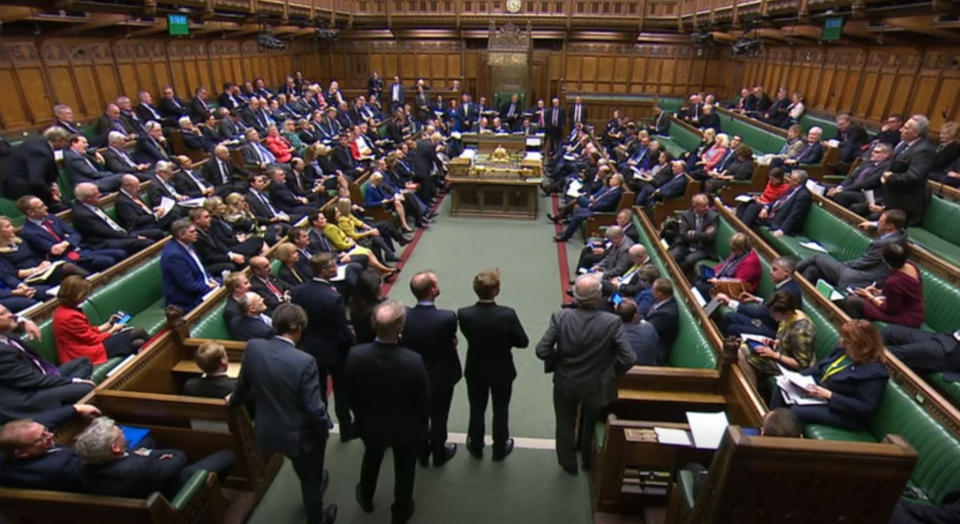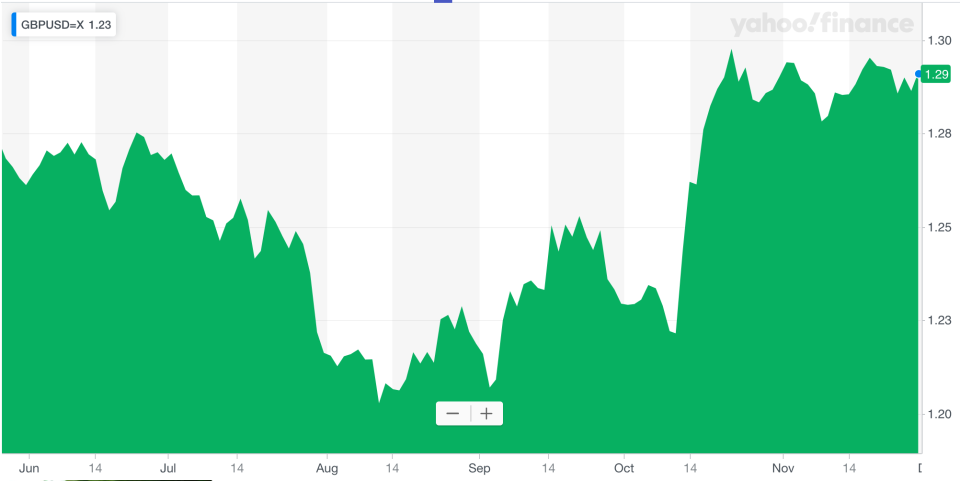What a hung parliament could mean for markets

Boris Johnson is in the lead as the election race enters its final stretch — but investors aren’t ready to bet the house on a Conservative victory just yet.
“Our strategists see little value in adding risk to the portfolio given a small Conservative majority or a hung parliament are still very possible outcomes,” JP Morgan told clients in a note last week.
Nerves in the City are still shot after the surprise outcome of the 2016 referendum and the shock reversal of fortunes for Theresa May in the 2017 election. The poor record of pollsters in both instances has left investors wary of putting too much weight on their forecasts.
“We still wouldn’t rule out another hung parliament, given how misleading polls have been in the past,” Samuel Tombs, the chief UK economist at Pantheon Macroeconomics, said in a recent note to clients.
YouGov’s closely-watched seat-by-seat forecast gave the Tory’s an 11 point lead in the polls, translating to a parliamentary majority of 68. But Deutsche Bank strategists pointed out that if that lead is cut to 7 points — as some other recent polls have recorded — then we would be left with a hung parliament. This is a very feasible margin of error.
“Since 1945, the final polls have inaccurately predicted the Tory-Labour vote share gap by 4 percentage points on average, and by as much as 9 percentage points,” Tombs said.
If the election does return no overall majority, what will it mean for UK assets?
Analysts say we could see a sell-off for the pound and some UK stocks, as a hung parliament would mean more uncertainty over the path of Brexit.
“The potential uncertainty in the event of a hung parliament means that there may be limited good options for UK investors,” said Rebecca O’Keeffe, head of investment at platform Interactive Investor.
“In the case of a hung Parliament, or a Labour victory, there could be some nasty discounts if market sentiment were to deteriorate sharply.”
Sectors most at risk from any Brexit-driven share price downturn include: UK banks, such as Lloyds (LLOY.L) and Barclays (BARC.L); house builders like Taylor Wimpey (TW.L) and Persimmon (PSN.L); and UK-focused retailers such as Sainsbury’s (SBRY.L) and Morrisons (MRW.L).
Tombs forecast the pound would fall to $1.25 against the dollar in the event of a hung parliament, a decline of around 3% from today’s levels.

“A lot of it will depend on what that hung parliament looks like,” Dean Turner, UBS Wealth Management’s chief UK economist, told journalists recently. “Does the opposition party, Labour, gain a material number of seats? Do they lose seats? That’s going to be one of the key things to watch.”
UK assets could rally if Labour manage to form a minority coalition government, despite the left-wing party’s image as an anti-business party.
Investors would likely see a Labour-led coalition as paving the way for a second referendum, which would raise the possibility of Brexit being cancelled. Labour’s more radical policies would also likely be kept under wraps by ruling partners.
If the Conservatives — the more business-friendly of the two main parties — forms a minority government, the makeup will also be closely scrutinised. If the Brexit Party manage to gain any seats and ally with the Tories, then fears will be revived about a possible hard Brexit.
However, Turner said he expects market moves to be short-term after the election result, with UK assets likely returning to similar levels we have seen over the last few months.
“There will be a lot of noise but when we strip back through all the noise, what’s the most likely conclusion from a hung parliament?” Turner told journalists.
“The boring story is, frankly, if we get a hung parliament, once we get over the initial: ‘who’s going in to Number 10?’ etc. and we strip back what’s likely to happen — an extension, a referendum, and not much else — that probably points to markets moving sideways.”

 Yahoo Finance
Yahoo Finance 